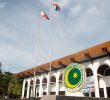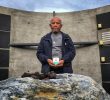By the Policy Study, Publication and Advocacy (PSPA)
Center for People Empowerment in Governance (CenPEG)
MANILA — The shame and indignation that greeted the May 14 mid-term elections was not as heavy in at least two of the country�s 81 provinces. As the dust of dirt politics settled in Pampanga and Isabela, a flicker of hope came upon the two provinces� inhabitants. In the first province, a Catholic parish priest, Fr. Ed Panlilio, was elected governor � a first for the whole Philippines. A former broadcast journalist, Maria Gracia Cielo �Grace� Padaca, was reelected also as governor in the second. The two provinces share common characteristics that are also a national trademark: they have been ruled for generations by political dynasties and jueteng (or illegal numbers game) politics is very much alive.
The election of Panlilio, 53, and Padaca, 43, was considered a slap in the face of President Gloria M. Arroyo. Fr. Panlilio�s rivals in the native province of Arroyo � Mark Lapid and Lilia Pineda � were allies of the President. The Dys, who have reigned over Isabela for four decades, were also supporters of Arroyo.
Their election loomed large as a landmark where traditional and jueteng politics gave way to emergent non-traditional figures. It dawned upon cross-sections of the population not only in the two provinces but also across the country that dynastic rule � and the corruption and inept leadership that go with it – can be temporal and that, given the chance, �moral alternatives� can make a good showing in an election perennially marred by fraud, intimidation and other acts of violence.
Pampanga (pop.: about 1.9 million), despite its Clark special economic zone, an international airport, hotels and resorts, is basically a province still locked to its feudal past. Farming and fishing are the two main economic activities. But low incomes are turning many communities into one of the country�s major sources of migrant workers. Since 1946, the province had been ruled by one political clan after another, with most leaders preoccupied with courting the incumbent President�s favor even as majority of the people wallowed in poverty and exploitation.
Lackluster performance
The most recent political family to lord over Pampanga was that of action actor Lito Lapid and son Mark who became governors in 1995 to 2007. Despite the Lapids� lackluster performance, Mark ran for reelection in the May elections with Lilia Pineda, wife of alleged jueteng lord and presidential friend, Bong Pineda, also pushing herself into the gubernatorial derby. Peeved by unjustly being given no choice, many Kapampangans looked for a way out of this predicament.
Roland Simbulan, a University of the Philippines professor who hails from Betis, Guagua, where Fr. Panlilio served as a parish priest, says that the latter � �Among Ed� to friends � had no intention to run for governor but that he was pushed by middle class families, businessmen as well as lowly farmers as the alternative candidate against Lapid and Pineda �who were widely perceived to be either corrupt or partners in dirty jueteng money.� Fr. Panlilio served for more than 10 years as provincial director of the diocese�s social action centers especially during the difficult years of the Mt. Pinatubo volcanic and lahar crisis.
Panlilio, Simbulan notes, personified a leadership that is �respected, accountable, and transparent� and is also disinterested in power and money in contrast to the tainted politics of the Lapids and Pinedas.
Like Pampanga, Isabela (pop.: 1.3 million) lives on agriculture, is a producer of rice and corn, and a hub of trade and commerce. The Dy family dynasty is alleged to have thrived on illegal logging and jueteng. Padaca, known in her province as a fearless radio commentator, first ran for a House seat in 2001 and lost but finally wrestled the gubernatorial post in 2004 from Faustino Dy, Jr., son of family patriarch Faustino, Sr. The province gave her a second mandate as governor last May 14 against opponent Benjamin Dy, 54, another son of Faustino, Sr. In both elections, Padaca, who is physically handicapped since the age of three, was supported by church groups and grassroots organizations.
2007 Elections, Analysis, Religion









